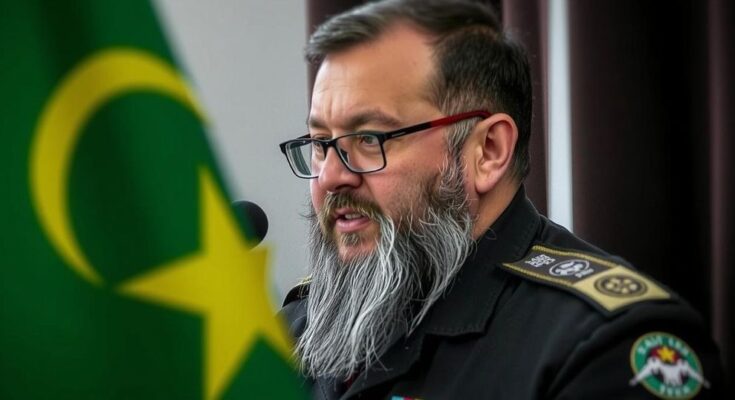The IDF intensified its military actions in Gaza and Lebanon, conducting extensive airstrikes, including in Beirut. Hezbollah confirmed the death of its media relations chief, while Pope Francis called for an investigation into Israel’s actions in Gaza, suggesting potential genocide. Ongoing tensions with Iran further complicate the situation as diplomatic efforts are renewed ahead of a new U.S. administration.
In the ongoing conflict in the region, the Israel Defense Forces (IDF) have heightened their military operations, conducting substantial airstrikes across Gaza and Lebanon, including multiple strikes on Beirut. These actions coincide with a renewed diplomatic initiative from the White House, aiming to stabilize the situation prior to President-elect Donald Trump assuming office in January. Additionally, tensions between Israel and Iran have escalated further, following Israeli precision strikes on military targets within Iranian territory, a reaction to Iran’s earlier missile attacks.
On a significant note, Mohammed Afif, the media relations chief of Hezbollah, was confirmed killed following an Israeli bombardment in Beirut. The airstrikes reportedly caused considerable damage, leaving one building partially collapsed and injuring several individuals. The IDF later acknowledged Afif’s long-standing influence within the organization and noted his involvement in military operations against Israeli forces.
In a broader humanitarian discourse, Pope Francis has called for an investigation into the actions of Israel in Gaza, describing them as potentially fitting the definition of genocide. This assertion alludes to the deteriorating conditions faced by the population amidst ongoing conflicts and supports a thorough examination of the situation. The Pope emphasized the plight of refugees fleeing these conflicts and the pressing need for humanitarian aid to the beleaguered regions.
Overall, the complex interplay of military actions, humanitarian crises, and international diplomatic efforts remains pivotal as stakeholders seek resolutions to the ongoing hostilities in the Middle East.
The current conflict involving Israel, Gaza, and Lebanon has seen significant escalations in hostilities, primarily marked by airstrikes and ground operations. The Israeli military’s recent activities have focused on various strategic targets, including significant locations in both Gaza and Lebanon. This increase in military action has attracted international attention, leading to diplomatic responses and discussions about human rights implications in the affected areas. As the situation evolves, leadership figures from both sides are making moves to reinforce their positions and narratives, culminating in tragic losses and calls for humanitarian interventions.
In conclusion, the recent developments in the Israel-Gaza-Lebanon conflict reveal a critical juncture in the region’s enduring strife. The airstrikes and military operations by the IDF have resulted in significant fatalities, including that of a high-ranking Hezbollah official, while also igniting calls for international inquiry into the humanitarian implications of these actions. Efforts for diplomatic resolutions are being compounded by escalating tensions, particularly with Iran, illustrating the multifaceted nature of this ongoing crisis. The Pope’s call for investigation adds an important dimension to the discourse surrounding military actions and their humanitarian ramifications.
Original Source: www.goodmorningamerica.com




